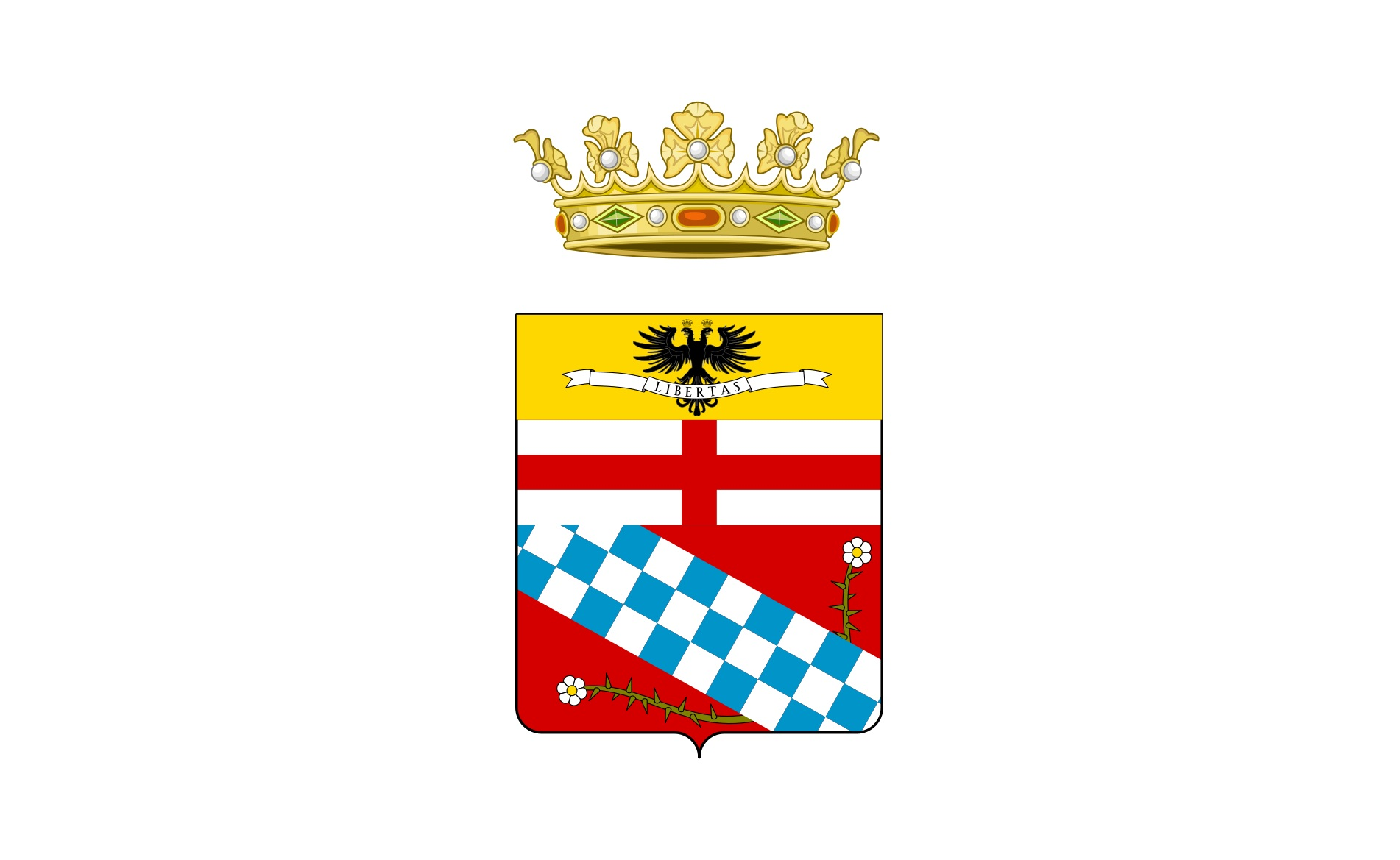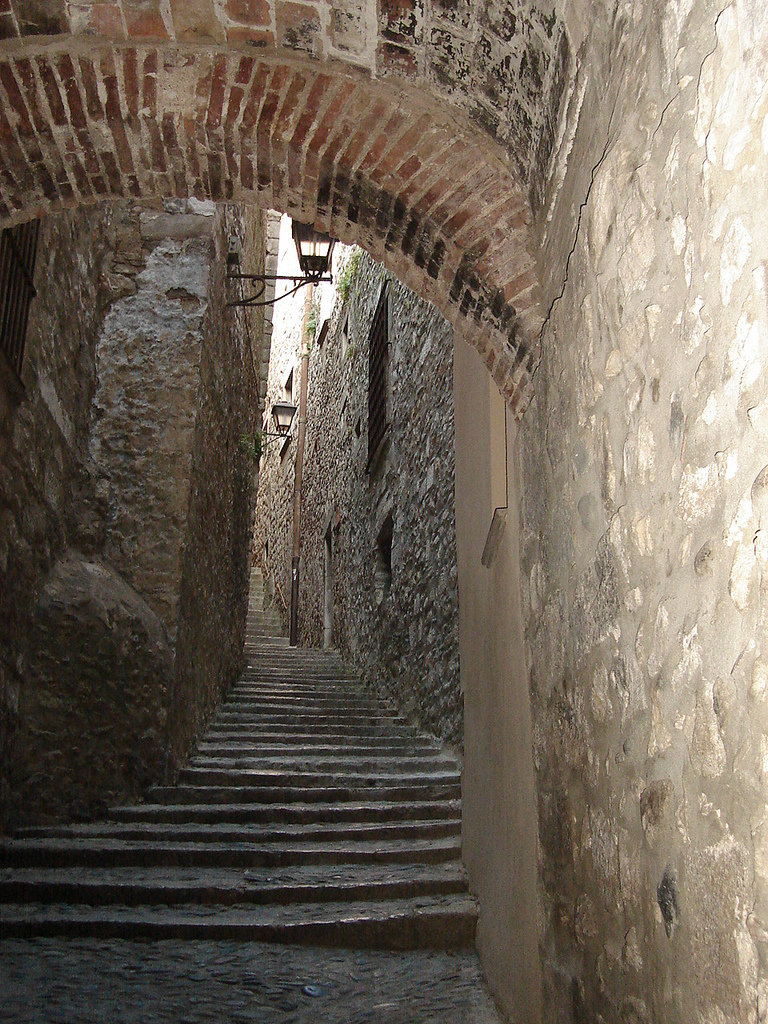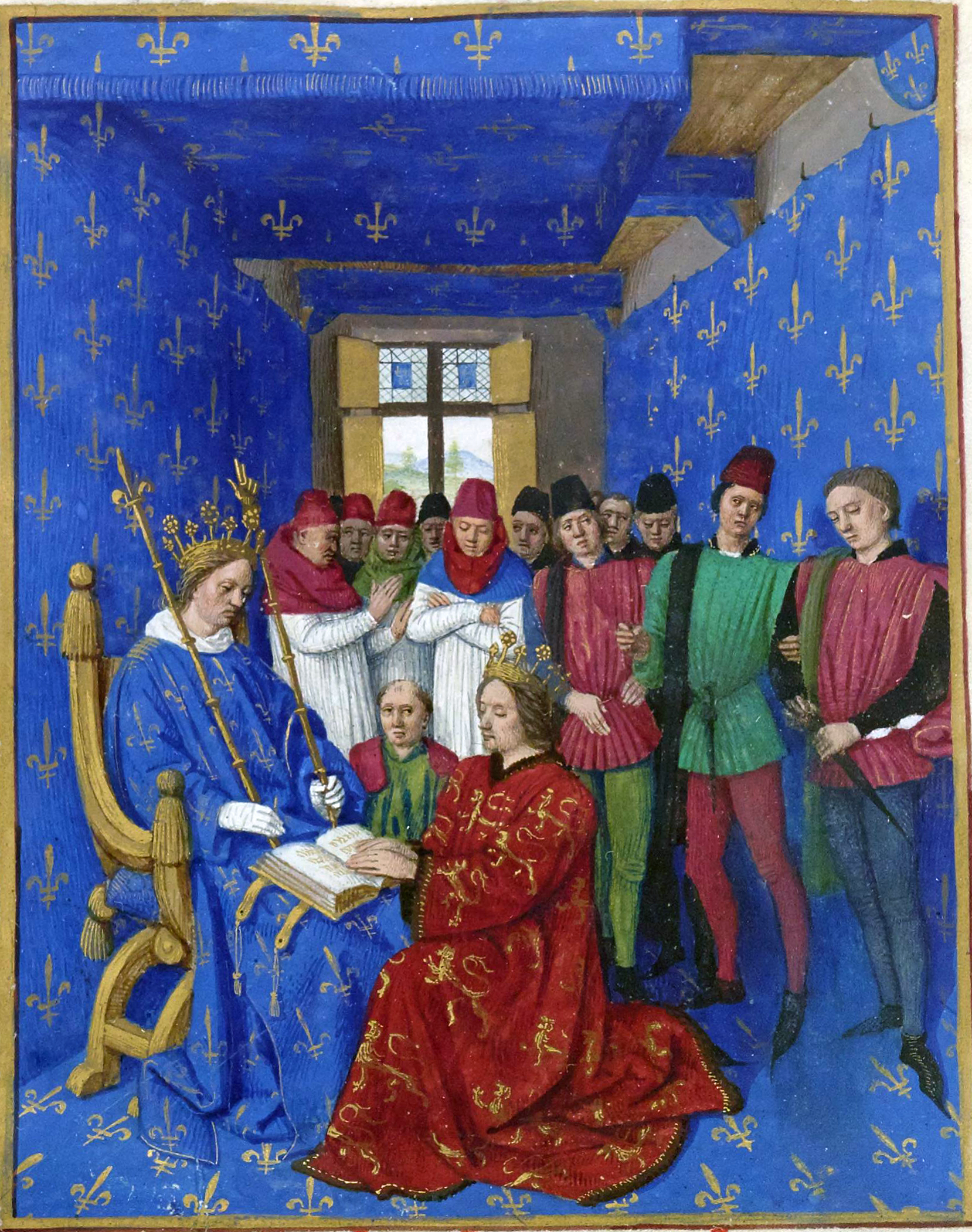|
Aragonese Conquest Of Sardinia
The Aragonese conquest of Sardinia took place between 1323 and 1326. The island of Sardinia was at the time subject to the influence of the Republic of Pisa, the Pisan della Gherardesca family, Genoa and of the Genoese families of Doria and the Malaspina; the only native political entity survived was the Judicate of Arborea, allied with the Crown of Aragon. The financial difficulties due to the wars in Sicily (until 1295), the conflict with the Crown of Castile in the land of Murcia and Alicante (1296-1304) and the failed attempt to conquer Almeria (1309) explain the delay of James II of Aragon in bringing the conquest of Sardinia, enfeoffed to him by Pope Boniface VIII in 1297. The possession of the island of Sardinia was crucial for the Crown of Aragon. Sardinia was abundant of natural resources like silver and salt and had a thriving agro-pastoral economy; also its geographical location ensured more control over the western Mediterranean and the island itself was an indisp ... [...More Info...] [...Related Items...] OR: [Wikipedia] [Google] [Baidu] |
Sardinia
Sardinia ( ; it, Sardegna, label=Italian, Corsican and Tabarchino ; sc, Sardigna , sdc, Sardhigna; french: Sardaigne; sdn, Saldigna; ca, Sardenya, label=Algherese and Catalan) is the second-largest island in the Mediterranean Sea, after Sicily, and one of the 20 regions of Italy. It is located west of the Italian Peninsula, north of Tunisia and immediately south of the French island of Corsica. It is one of the five Italian regions with some degree of domestic autonomy being granted by a special statute. Its official name, Autonomous Region of Sardinia, is bilingual in Italian and Sardinian: / . It is divided into four provinces and a metropolitan city. The capital of the region of Sardinia — and its largest city — is Cagliari. Sardinia's indigenous language and Algherese Catalan are referred to by both the regional and national law as two of Italy's twelve officially recognized linguistic minorities, albeit gravely endangered, while the regional law provides ... [...More Info...] [...Related Items...] OR: [Wikipedia] [Google] [Baidu] |
Malaspina Family
The House of Malaspina was a noble Italian family of Longobard origin that descended from Boniface I, Margrave of Tuscany, Boniface I, through the Obertenghi line, that ruled Lunigiana from the 13th to the 14th centuries, and the Province of Massa and Carrara, marquisate of Massa and lordship of Carrara (which later became the Duchy of Massa and Carrara and at a later time the Principality of Massa and the Marquisate of Carrara) since the 14th century. History The founder of the Malaspina family was Oberto I, who became the count of Luni, Italy, Luni in 945. Oberto I was appointed as the marquise of the March of Genoa under the Italian king Berengar II of Italy, Berengario II in 951 and he became a count palatine in 953. Oberto I had two children; Oberto II, who inherited the title of count of Luni from his father, and Adalberto I, whose offspring founded the Pallavicino and the Cavalcabò families. Oberto II had four children; Bertha of Milan, the spouse of the King of Italy ... [...More Info...] [...Related Items...] OR: [Wikipedia] [Google] [Baidu] |
Sancho Of Majorca
Sancho (; 1274 – 4 September 1324), called the Pacific or the Peaceful, was King of Majorca, Count of Roussillon and Cerdanya, and Lord of Montpellier from 1311 to his death. His 13-year-long reign was markedly undisturbed by turmoil, which earned him his epithets, and is thus often contrasted to the troublesome reigns of his father, James II, and nephew, James III, his predecessor and successor respectively. Youth Sancho was one of five children and the second son of James II and Esclaramunda of Foix. He was born in Pina, Mallorca around 1274. His father ruled the Kingdom of Majorca and adjacent fiefs under the suzerainty of his brother and afterwards nephews, the kings of Aragon. James's attempts to free himself of this vassalage led to his deposition by his nephew, King Alfonso III of Aragon, in 1286. Sancho, his mother and his elder brother, James, were taken captives by their cousin. The Queen was released but the brothers were kept in close confinement for several year ... [...More Info...] [...Related Items...] OR: [Wikipedia] [Google] [Baidu] |
Girona
Girona (officially and in Catalan language, Catalan , Spanish: ''Gerona'' ) is a city in northern Catalonia, Spain, at the confluence of the Ter River, Ter, Onyar, Galligants, and Güell rivers. The city had an official population of 103,369 in 2020. Girona is the capital of the province of Girona, province of the same name and also capital of the ''Comarques of Catalonia, comarca'' of the Gironès and the vegueria of Girona. Since much of the old quarter of this ancient city has been preserved, Girona is a popular destination for tourists, and film productions have used it as a filming location (e.g. ''Game of Thrones''). The city is located northeast of Barcelona. History The first historical inhabitants in the region were Iberians; Girona is the ancient Gerunda, a city of the Ausetani. Later, the Ancient Rome, Romans built a citadel there, which was given the name of ''Gerunda''. The Visigoths ruled in Girona until it was conquered by the Moors in 715. Charlemagne reconquere ... [...More Info...] [...Related Items...] OR: [Wikipedia] [Google] [Baidu] |
Clau Del Sostre De Santa Maria Del Mar - 2 De 5
Ana Cláudia Scheffer Riffel (born April 18, 1996), known by her stage name Clau, is a Brazilian singer and songwriter. She was signed to Universal Music after her popular online performances got her noticed. Her single ''Relaxa'' reached 1 million views on YouTube in less than 2 days. Clau is managed by the also Brazilian singer Anitta Anitta may refer to: * Anitta (king), Hittite king *Anitta (singer) Larissa de Macedo Machado (born March 30, 1993), known professionally as Anitta, is a Brazilian singer, songwriter and television host. She is regarded as one of biggest Brazi .... Discography EP *''#Relaxa'' (2018) References 1996 births Living people 21st-century Brazilian singers Brazilian composers Brazilian singer-songwriters 21st-century Brazilian women singers Brazilian women singer-songwriters {{Brazil-musician-stub ... [...More Info...] [...Related Items...] OR: [Wikipedia] [Google] [Baidu] |
Eastern Mediterranean
Eastern Mediterranean is a loose definition of the eastern approximate half, or third, of the Mediterranean Sea, often defined as the countries around the Levantine Sea. It typically embraces all of that sea's coastal zones, referring to communities connected with the sea and land greatly climatically influenced. It includes the southern half of Turkey's main region Anatolia, its smaller Hatay Province, the island of Cyprus, the Greek Dodecanese islands, and the countries of Egypt, Israel, Jordan, Palestine, Syria and Lebanon. Its broadest uses can embrace the Libyan Sea thus Libya; the Aegean Sea thus European Turkey (East Thrace), the mainland and islands of Greece; and a central part of the Mediterranean, the Ionian Sea, thus southern Albania in Southeast Europe reaching, west, to Italy's farthest south-eastern coasts. Jordan is climatically, and economically part of the region. Regions The eastern Mediterranean region is commonly interpreted in two ways: *The Levant, inc ... [...More Info...] [...Related Items...] OR: [Wikipedia] [Google] [Baidu] |
Salt
Salt is a mineral composed primarily of sodium chloride (NaCl), a chemical compound belonging to the larger class of salts; salt in the form of a natural crystalline mineral is known as rock salt or halite. Salt is present in vast quantities in seawater. The open ocean has about of solids per liter of sea water, a salinity of 3.5%. Salt is essential for life in general, and saltiness is one of the basic human tastes. Salt is one of the oldest and most ubiquitous food seasonings, and is known to uniformly improve the taste perception of food, including otherwise unpalatable food. Salting, brining, and pickling are also ancient and important methods of food preservation. Some of the earliest evidence of salt processing dates to around 6,000 BC, when people living in the area of present-day Romania boiled spring water to extract salts; a salt-works in China dates to approximately the same period. Salt was also prized by the ancient Hebrews, Greeks, Romans, Byzantines, ... [...More Info...] [...Related Items...] OR: [Wikipedia] [Google] [Baidu] |
Silver
Silver is a chemical element with the Symbol (chemistry), symbol Ag (from the Latin ', derived from the Proto-Indo-European wikt:Reconstruction:Proto-Indo-European/h₂erǵ-, ''h₂erǵ'': "shiny" or "white") and atomic number 47. A soft, white, lustrous transition metal, it exhibits the highest electrical conductivity, thermal conductivity, and reflectivity of any metal. The metal is found in the Earth's crust in the pure, free elemental form ("native silver"), as an alloy with gold and other metals, and in minerals such as argentite and chlorargyrite. Most silver is produced as a byproduct of copper, gold, lead, and zinc Refining (metallurgy), refining. Silver has long been valued as a precious metal. Silver metal is used in many bullion coins, sometimes bimetallism, alongside gold: while it is more abundant than gold, it is much less abundant as a native metal. Its purity is typically measured on a per-mille basis; a 94%-pure alloy is described as "0.940 fine". As one of th ... [...More Info...] [...Related Items...] OR: [Wikipedia] [Google] [Baidu] |
Pope Boniface VIII
Pope Boniface VIII ( la, Bonifatius PP. VIII; born Benedetto Caetani, c. 1230 – 11 October 1303) was the head of the Catholic Church and ruler of the Papal States from 24 December 1294 to his death in 1303. The Caetani, Caetani family was of baronial origin, with connections to the papacy. He succeeded Pope Celestine V, who had papal resignation, abdicated from the papal throne. Boniface spent his early career abroad in diplomatic roles. Boniface VIII put forward some of the strongest claims of any pope to temporal as well as spiritual power. He involved himself often with foreign affairs, including in France, Sicily, Italy and the First War of Scottish Independence. These views, and his chronic intervention in "temporal" affairs, led to many bitter quarrels with Albert I of Germany, Philip IV of France, and Dante Alighieri, who placed the pope in the Eighth Circle of Hell in his ''Divine Comedy'', among the simony, simoniacs. Boniface systematized canon law (Catholic Church), ... [...More Info...] [...Related Items...] OR: [Wikipedia] [Google] [Baidu] |
James II Of Aragon
James II (Catalan: ''Jaume II''; Spanish: ''Jaime II;'' 10 April 1267 – 2 or 5 November 1327), called the Just,, an, Chaime lo Chusto, es, Jaime el Justo. was the King of Aragon and Valencia and Count of Barcelona from 1291 to 1327. He was also the King of Sicily (as James I). from 1285 to 1295 and the King of Majorca from 1291 to 1298. From 1297 he was nominally the King of Sardinia and Corsica, but he only acquired the island of Sardinia by conquest in 1324. His full title for the last three decades of his reign was "James, by the grace of God, king of Aragon, Valencia, Sardinia and Corsica, and count of Barcelona" (Latin: ''Iacobus Dei gratia rex Aragonum, Valencie, Sardinie, et Corsice ac comes Barchinone''). Born at Valencia, James was the second son of Peter III of Aragon and Constance of Sicily. He succeeded his father in Sicily in 1285 and his elder brother Alfonso III in Aragon and the other Spanish territories, including Majorca, in 1291. He was forced to ... [...More Info...] [...Related Items...] OR: [Wikipedia] [Google] [Baidu] |
Alicante
Alicante ( ca-valencia, Alacant) is a city and municipality in the Valencian Community, Spain. It is the capital of the province of Alicante and a historic Mediterranean port. The population of the city was 337,482 , the second-largest in the Valencian Community. Toponymy The name of the city echoes the Arabic name ''Laqant'' () or ''al-Laqant'' (), which in turn reflects the Latin ''Lucentum'' and Greek root ''Leuké'' (or ''Leuka''), meaning "white". History The area around Alicante has been inhabited for over 7000 years. The first tribes of hunter-gatherers moved down gradually from Central Europe between 5000 and 3000 BC. Some of the earliest settlements were made on the slopes of Mount Benacantil. By 1000 BC Greek and Phoenician traders had begun to visit the eastern coast of Spain, establishing small trading ports and introducing the native Iberian tribes to the alphabet, iron, and the pottery wheel. The Carthaginian general Hamilcar Barca established the fortifie ... [...More Info...] [...Related Items...] OR: [Wikipedia] [Google] [Baidu] |






.png)
